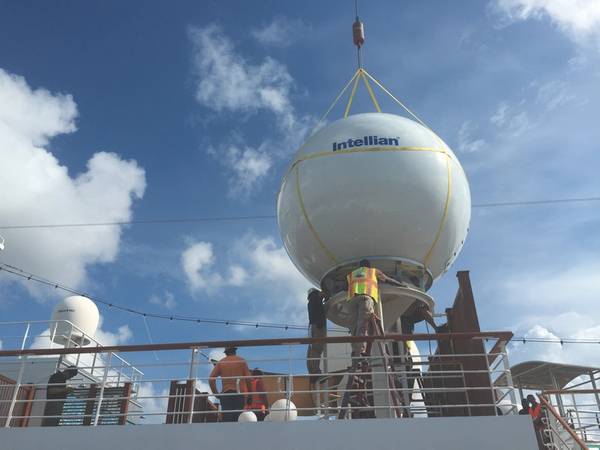
Vessels today have the capability to gather information and data from a wide variety of sources. This data can inform the crew about the impact of acceleration on the hull, provide updates on lubrication use during slow steaming, and use dynamic positioning to automatically maintain a vessel’s position and heading - among many other things. So while shipping might consider itself a conservative industry, there’s nothing old-fashioned about the technology that’s driving its progress today.
For a long time the core industry drivers for the adoption of new, better, higher-speed communications technologies across global fleets has been a dynamic duo: crew welfare and driving improvements in operational efficiency. These are the obvious benefits of evolving your satcoms infrastructure, just as obvious as providing email and phones for everyone in your offices. This is Business IT 101. Investing in keeping the crew happy will save a lot of overheads on recruiting and training new crew. The numbers seem to prove valid, as was well illustrated in the recent Nautilus Crew Survey. But is it really the key driver? Will that jumpstart the fourth industrial revolution in shipping as we look towards the challenges that shipowners face over the coming years? Could taking a broader view generate new value creation that will have a tangible impact on the bottom line?
The answer is in the data; in how to efficiently collect it, analyze it, and then scrutinize it to reveal not only the questions we should be asking, but what some of the answers to those questions might be. It is this process that will generate the insight required to optimize operations and deliver the best possible value to customers. The intelligence gleaned through observing the entire operational process and lifecycle in this way will create the space to generate new business models, new ways of thinking, new services, and opportunities for new markets and avenues of revenue.
If we look only at the connectivity of each vessel as a cost center, then the ultimate aim of optimizing user experience, creating new value, generating new, higher margin revenue and securing our place in tomorrow’s business model will remain a significant challenge.
Take a page from the more mainstream IT industry of today. Everyone is talking about convergence. Get standardized, get streamlined, get optimized. And what are the stated benefits? Delivering an easier and faster installation process to reduce your operational downtime and control potential costs associated with laying down this critical baseline infrastructure to enable your digital future.
Intellian, through the innovation behind its v-Series antennas, has played a pivotal role in revolutionizing VSAT, moving it from a cumbersome technology to a viable, convenient communications solution which is at the forefront of pioneering remote management. Key to the success of bringing this to fruition has been creating frequency flexible solutions that future-proof the investment in this technology through an adaptable architecture for compatibility with future satellites, whether they operate on Ku or Ka-band. Through additional developments including applications for internal use to more accurately diagnose potential issues remotely and apply the correct fix before larger issues arise, field interventions can be reduced, thereby controlling costs and increasing uptime.
It’s a given in today’s market that big data will have a significant impact on tomorrow’s operations. What’s less well understood is what’s required. If freight forwarders want to be able to identify the state and condition of their cargoes, or reefer operators improve their schedule reliability, they need to have the infrastructure in place to reliably deliver it. Smart technology has already begun to revolutionize shipping, and will continue to bring changes to the industry in the near future. By ensuring that vessels are connected to the digital ecosystem through reliable antenna technologies, shipowners can ensure they are keeping apace with developments today, as well as future-proofing themselves for technological innovations to come. Innovation in the digital space moves fast, and without forward-thinking technologies that continually look to anticipate the next step in the journey towards digitization and automation, shipowners can quickly find themselves behind the curve, and out of pocket.
When ships can converse with their operators, vessel feedback becomes part of the conversation. Second-guessing from shore is eliminated because speculation is no longer necessary, risk is reduced with greater understanding of real time variables, and reliability improves to the point that it almost becomes a redundant metric. If you want to live in that world, integrated solutions that ensure a seamless path to strong connectivity are the first step. The antenna capacity needed to facilitate this step-change is nearly within our grasp, and Intellian is already driving innovations in antenna technologies that will support future digital applications.
(As published in the March/April 2018 edition of Maritime Logistics Professional)




